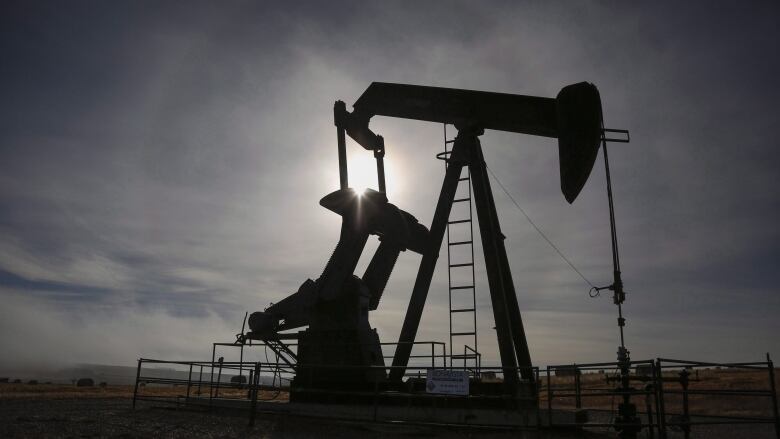OPEC deal 'not nearly enough' to hasten oil recovery, says Calgary expert
'Weakest producers will be the ones that end up out of business,' says Richard Masson

The oil production cut agreement between Organization of the Petroleum Exporting Countries (OPEC) and a group of countries led by Russia misses the mark on several levels, and recovery for the industry could be months off, a Calgary expert says.
"The pain will continue. The weakest producers will be the ones that end up out of business," Richard Masson, chair of the World Petroleum Council, told CBC News Network Monday.
The deal inked Sunday between OPEC and its allies to cut output by roughly 10 per cent or 9.7 million barrels a day.
The move was designed to prop up the price of oil by limiting supply, since prices for crude have plummeted since the start of March, when a previous tentative agreement to cut production expired.
Prices lowest in nearly 20 years
Oil prices around the world have plunged to their lowest levels in almost 20 years as oil-producing nations pumped as much as they could, Masson said, drowning the market in more oil than it needed.
That cut, he said,while good directionally, comes up short.
"A cut of 10 million barrels a day, although it sounds very large, doesn't balance the market and it means more oil is going into tanks, and the tanks are getting full," he said.
"Big reservoirs keep producing oil. It is not easy to shut them all in. OPEC does not want to give up market share. SaudiArabia is one of the lowest cost producers in the world. Their total production was at 12 million barrels a day. They are not going to go to zero just so the world can have a better price."
Alberta, which has been under government curtailment since January 2019, will effectively face a 25 per cent production cut by the end of this year, because of challenges moving the product, Masson said.
"We would end up with producers having to pay people to take their oil because they don't have a place to put it," Masson said.
WATCH |How Alberta stockpiled medical equipment before COVID-19 struck:
A recovery could be up to five months off, he added.
"I wouldn't say prices are going to go up anytime soon. We have weeks of very low prices ahead of us because of the momentum in the system and the tanks are more full," Masson said.
"Until people start driving more and using jet fuel, prices are not likely to go up."
Travel bans, increased work-from-home plans and physical distancing guidelines have resulted in a dramatic drop in transportation use, and a noticable decline in air pollution.
With files from Pete Evans and CBC News Network













_(720p).jpg)


 OFFICIAL HD MUSIC VIDEO.jpg)
.jpg)



























































































